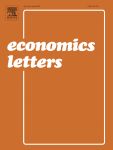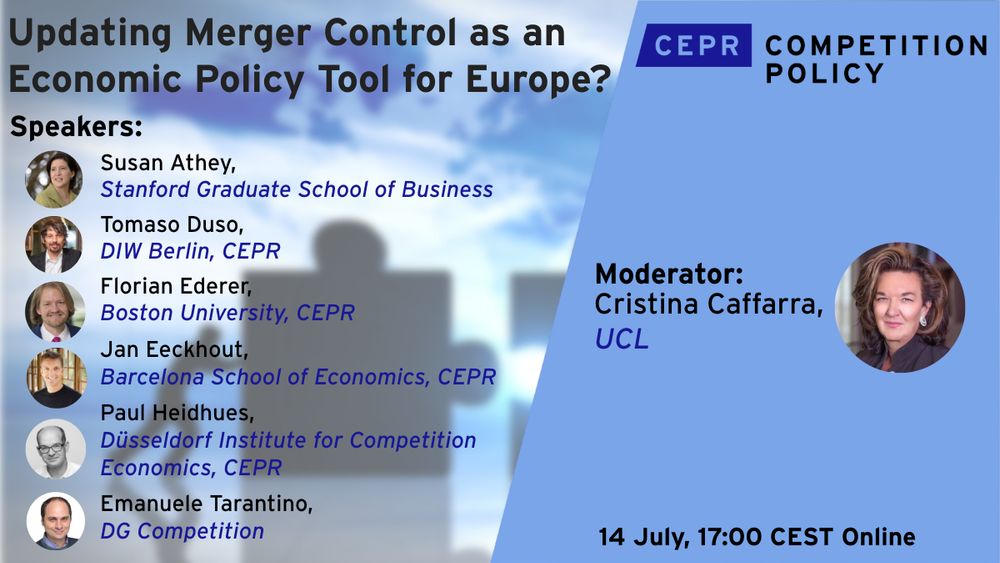Tommaso Valletti
Tommaso M. Valletti is Professor of Economics at Imperial College Business School, and also Professor of Economics at the University… more

Reposted by Tommaso Valletti
Reposted by Tommaso Valletti, Thom Brooks
👉 Without synergies/spillovers, mergers harm consumers.
So: weakening merger control in the name of innovation is misguided.
The economics is clear — the ITOH still stands.
📄 Article www.sciencedirect.com/science/arti...

This theory has shaped major EU merger cases in telecoms & agro-chemicals.
What I find:
Do mergers boost or harm innovation? The debate is heating up in EU & UK policy circles.
Some argue:
Relax merger control → more investment, productivity, competitiveness.
This view has influenced reports like Draghi’s & UK gov’t policy.
But is it right? 🤔
by Diane Coyle — Reposted by Tommaso Valletti, Robert Metcalfe
Reposted by Tommaso Valletti, Nando Sigona, Ruth Mace
Reposted by Tommaso Valletti, Alex Coad, Robert Metcalfe
Large new dataset of Amazon product reviews, including full text and photos and product characteristics, with individual *reviews labeled as fake reviews*.
I believe this is the first publicly available data of this kind.
github.com/bretthollenb...
Implications: postmerger policy ineffectiveness needs a more stringent ex ante policy in order to achieve the right balance.
Link to the pre-print:
papers.ssrn.com/sol3/papers....
Ciao
2/2
We study the policy toward consummated mergers that prove to be anticompetitive, both in theoretical and empirical terms.
1/2

Reposted by Tommaso Valletti
Reposted by Tommaso Valletti
Reposted by Tommaso Valletti
Reposted by Tommaso Valletti, Tomaso Duso
Featuring E Tarantino, S Athey, @janeeckhout.bsky.social, P Heidhues, F Ederer, @tomasoduso.bsky.social
Moderator: @cristinacaffarra.bsky.social
14 July @ 17:00 CEST
cepr.org/events/updat...
@tomvalletti.bsky.social

Competition should work for the many, not the few.


Reposted by Tommaso Valletti
Reposted by Tommaso Valletti
www.youtube.com/watch?v=v7e5...
Reposted by Tommaso Valletti
Reposted by Tommaso Valletti
🗣️@snoep.bsky.social, D Harhoff, U Akcigit, G Spagnolo, B Baltzan, @schularick.bsky.social
@sandertordoir.bsky.social @tomvalletti.bsky.social @cristinacaffarra.bsky.social
cepr.org/events/desig...
#EconSky

The paper is dedicated to Mario a dear friend who passed away far too soon. ❤️
Read at: ow.ly/BnZQ50VkExP
Ciao/Fin
Readers appreciate discovery, suggestions & events organized by bookshops. This is in line with the “service effort” mechanism in settings where otherwise there would be free-riding. 5/
So there is a possible trade-off! 4/


End of the story? 3/

